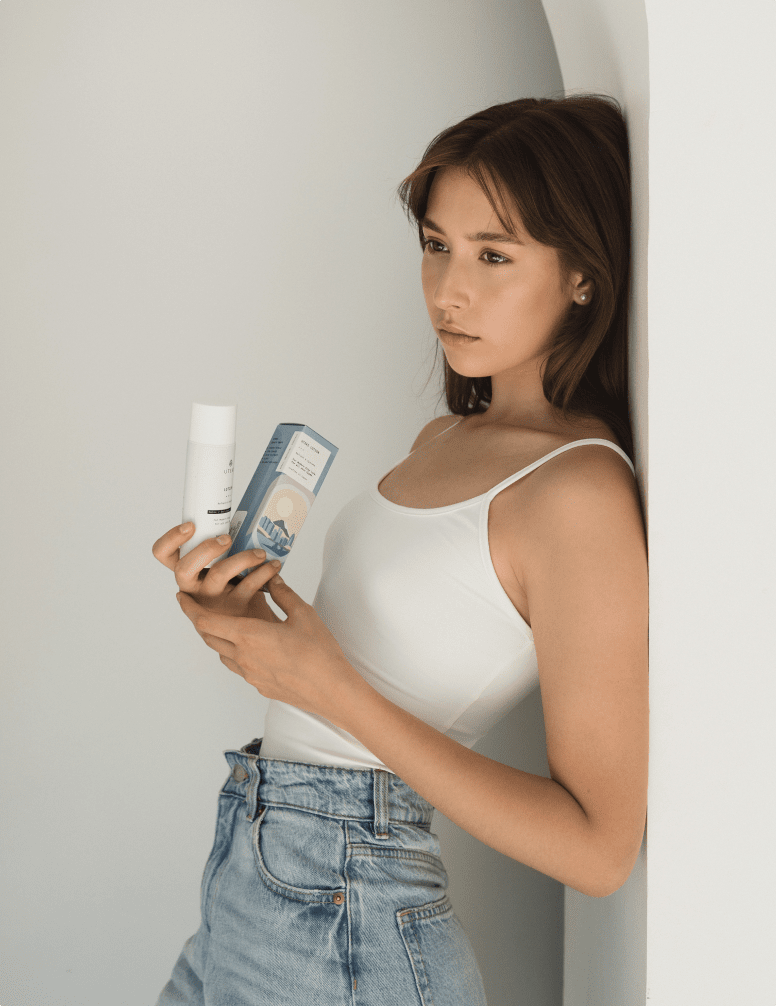Estimated reading time: 5 min read
Glycation
What is Glycation: How Does it Affect Your Skin
Among medical professionals like doctors, dentists, and nutritionists, it's common knowledge that reducing sugar consumption promotes overall health and vitality. However, have you ever considered the impact of sugar on your skin? Could indulging in that tempting slice of chocolate cake lead to signs of aging in your skin later on?
Turns out, sugar plays a significant role in the skin's aging mechanism, and this phenomenon is known as glycation. Let’s elucidate the concept of glycation and explore the extent to which sugar can influence the aging process of the skin.
What is Glycation?
Glycation is a natural process where sugar molecules attach to proteins in your body, including those in your skin. This binding process forms harmful molecules called AGEs, which can damage collagen and elastin, proteins that keep your skin firm and elastic. When these proteins are affected, your skin loses its suppleness, leading to wrinkles and other signs of aging.
How Does Glycation Occur
Glycation is a natural process that occurs in our bodies when sugar molecules bind to proteins, creating advanced glycation end products (AGEs). It is primarily caused by consuming sugary foods and drinks, however there are several more factors that contribute to glycation:
- high sugary diet
- certain cooking methods (grilling, frying and roasting)
- aging
- smoking and alcohol
- genetics and certain diseases (like diabetes)
- sedentary lifestyle, stress, poor sleep
How Does Glycation Affect Your Skin
When sugar molecules in your bloodstream bind to proteins without the help of enzymes - glycation comes in. This binding process forms advanced glycation end products (AGEs), which can accumulate in various tissues, including the skin. AGEs can cause proteins to become stiff and less functional, leading to the loss of elasticity and the formation of wrinkles in the skin.
Glycation-induced inflammation can increase melanin production, leading to hyperpigmentation and uneven skin tone. It also impairs the skin's natural barrier function, leading to decreased moisture retention and slows down the skin's natural healing process, making it more challenging for wounds, cuts, or acne to heal efficiently.
Strategies to Fight Glycation
However, there are ways to help combat glycation and minimize its effects on the skin. While it's a natural process, certain lifestyle choices and skincare practices can reduce its impact!
Embrace Targeted Skincare Formulas
UTEKI's skincare products incorporate Sakura extract, offering a range of items such as serums, creams, and masks. These products are carefully formulated to nourish and rejuvenate the skin.
One of its key ingredients is Sakura extract, derived from cherry blossoms, renowned for its skin-enhancing properties. Rich in antioxidants, Sakura extract helps protect the skin from free radicals, promoting a youthful complexion. It also has anti-inflammatory properties, making it ideal for sensitive skin. Additionally, Sakura extract provides deep hydration, enhancing the skin's natural glow and suppleness.
Optimize Your Diet
To minimize glycation consider reducing sugar and alcohol intake, choose low-glycemic foods (such as grains, nuts, vegetables), increase anti-oxidant foods (fruits, berries, leafy greens). Choose boiling and steaming instead of frying and grilling, add more spices like cinnamon or ginger and stay hydrated!
Prioritize Effective Sun Protection
Prioritizing effective sun protection is crucial not only for preventing glycation but also for maintaining overall skin health. Incorporating a broad-spectrum sunscreen with SPF 30 or higher into your daily skincare routine, even on cloudy days, is essential, as well as wearing protective clothing and seeking shade during peak sun hours further enhances your skin's defense against glycation and other sun-related damages.








